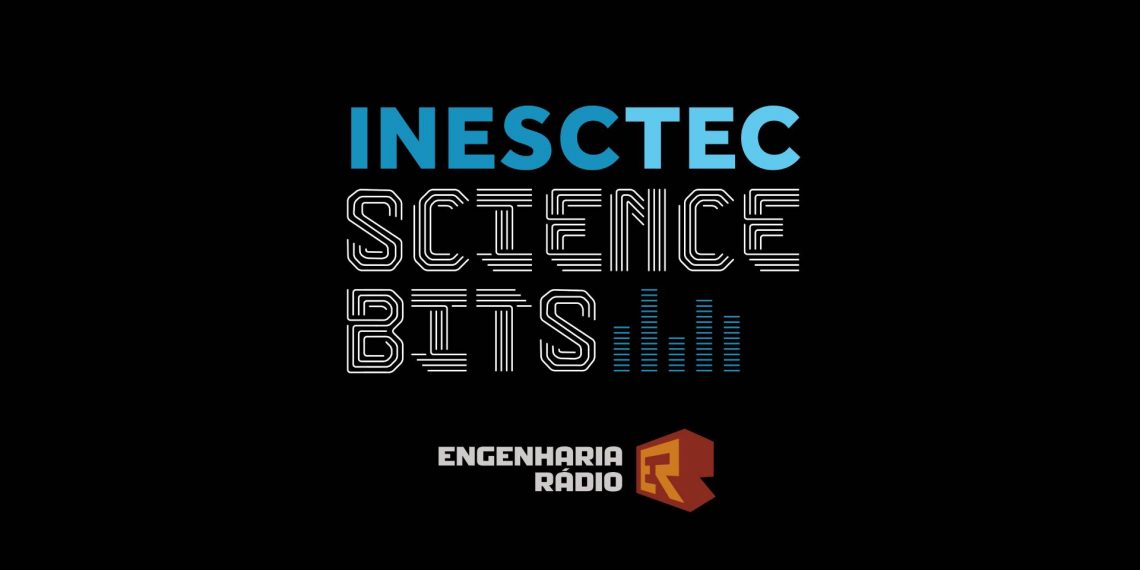INESC TEC Science Bits – Episode 8
PODCAST INESC TEC Science Bits
Guest speakers:
Rui Campos, Centre for Telecommunications and Multimedia
Bruno Ferreira, Centre for Robotics and Autonomous Systems
Keywords: telecommunications | Internet | broadband | deep-sea | robotics | autonomous vehicles

Rui Campos and Bruno Ferreira
The exercise of ocean research
Ocean research and the exploration of the sea’s surface and seabed are some of the biggest challenges experienced by countries with an extensive coast, such as Portugal. In addition to tourism, fishing, transportation and water sports, there are still many elements to explore in an area that occupies about 70% of the Earth’s surface, contributing to a large volume of foreign trade. There are no limits to what we can learn from exploring the oceans, and what we could develop thanks to that information.
The European Union has been promoting a comprehensive “blue” strategy, defining the goals concerning all breakthroughs associated with the oceans (surface and seabed) for the upcoming years, a task that Portugal has been carrying out regarding the country’s extensive coast. Considering that many of the EU’s borders are coasts and maritime spaces, the search for new sources of wealth is crucial in economic, environmental, political and strategic terms.
“The problem is very complex and it requires multidisciplinary scientific knowledge.”
The use of marine resources, namely those at significant depth, is quite demanding. Besides requiring a significant mobilisation of physical resources locally, it relies on a sustainable approach to control, observe, navigate and disseminate information.
Before ensuing any exploration action, it is necessary to ensure the necessary data collection, transmission and store resources, so researchers can work on the information collected, and carry out their analysis, in order to reach substantial conclusions. If we think, for instance, that the water pressure on the seabed could crush a human body, it is necessary to consider many different aspects when it comes to exploring the oceans.
Therefore, this process requires combining efforts from multidisciplinary scientific fields; only then will it be possible to advance in the research of such an adverse, extensive and still unknown environment.
Exploring the oceans: what are the challenges?
When we sail or dive into the deep sea, we are unable to resort to the communication skills we have while on the Earth’s surface. The communication and exchange of information in deep-sea environments are more difficult to carry out, and the exploration activities become more difficult, namely in terms of data collection, transmission and storage.
Therefore, and in addition to all the resources necessary for research in a real environment, it is important to guarantee the availability of mobile and wireless telecommunication networks. They enable digital communication in remote areas of the ocean, particularly in deep-sea areas – where the communication network must overcome very adverse conditions, namely the propagation of signals in deep-sea environments.
Obviously, the design of these technologies aims to support researchers, in order to guarantee their safety and operability, as well as to improve their knowledge. Not all data collection points are easily accessible; in this sense, robotics play a key role in these cases. Autonomous vehicles that can actually support researchers will certainly complement the set of solutions used in ocean exploration, thus contributing to the evolution and new elements in this field.
Monitor an extensive territorial area remotely
In addition to ocean exploration, it is also necessary to take into account that Portugal has control over extensive territorial waters. In this sense, the authorities must necessarily focus on exercising sovereignty over their territory, rather than just simply exploring it. This could help collecting new data and information that lead to breakthroughs in social, political and cultural terms.
Similarly to the land surface and the respective borders, the coast is vulnerable to intrusions, ecological issues and deviant development actions. In this sense, it is crucial and wise to monitor this entire extensive area, as thoroughly as possible. The problem is how to do it continuously and effectively.
Expenses or investment?
Moreover, there is an aspect that influences all these concerns, adding up to another challenge: the expenses associated with all these technologies and activities. Innovative ideas and scientific advances usually require a significant investment – which, in some cases, renders research impracticable by itself, by preventing the development of exploratory projects.
Therefore, we face a big question: is it be possible to overcome all these challenges, conquer the oceans, and do it without overburdening today’s economies?




 News, current topics, curiosities and so much more about INESC TEC and its community!
News, current topics, curiosities and so much more about INESC TEC and its community!